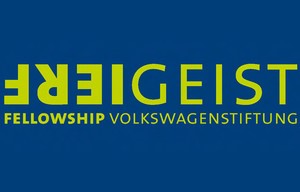PhD Position:
Volcanic Ash Deposition in Jet Engines: Munich, Germany
06.11.2017
The ‘volcanic ash vs. jet engines’ research group at the Ludwig-Maximilians-Universität (LMU) in Munich (group leader Dr. Wenjia Song) is currently offering 1 doctoral studentships for 3 years on the study of the influence of volcanic ash on jet engines. These positions offer a remarkable opportunity to be part of a multi-disciplinary group working at the forefront of geosciences and aircraft material science today in a highly international environment. The world-class Experimental Petrology and Volcanology Laboratory consists of top-quality facilities for volcanic hazard research, and we seek the very suitable candidate to join our dynamic and growing team.
One position is part of a large research initiative on Volcanic Ash Deposition in Jet Engines (VADJEs) funded by the ‘Freigeist’ Fellowship of the Volkswagen Foundation in Germany and LMUexcellent Junior Researcher Fund and headed by Dr. Wenjia Song. The project aims to transcend the boundaries of different fields, blend concepts from chemical engineering and biometrics and deploy state of the art technologies from coal-combustion technologies and material sciences to provide a basis for the better mitigation of the effect of volcanic ash on jet engines. This project is the combination of calculations and experiments, and the successful applicant will employ a range of novel experimental and analytical techniques. They will also have the chance to gain experience in the communication of scientific research to the public in this high-profile field.
Project: Impact of volcanic ash droplets on thermal barrier coatings in jet engines
Description: When an aircraft passes through the volcanic ash cloud, volcanic ash particles will be ingested into jet engines, due to the fact that combustor discharge temperatures (2000 C) in jet engine is far in excess of the melting temperature of volcanic ash (1100 C), individual volcanic ash particle melt into droplets. These droplets impinge upon the surface of turbine blades coated by thermal barrier coatings (TBCs) to form splats. After impact, molten ash particles build up above those surfaces, and it appears that wetting of TBCs by a molten glass, and dissolution/reprecipitation of TBC grains in that glass, contribute to the attack of TBCs by volcanic ash.
The molten volcanic ash deposition adhesion-cohesion, as well as thermo-mechanical properties depend strongly upon the in-flight behaviour of molten ash droplet, and subsequent flattening and solidification. This project envisages the collaboration with Prof. Armelle Vardelle’s group utilizes free falling set up to experimentally investigate the impact and spreading process of millimetre-sized silicate droplets on the TBCs and explore the following questions:
(a) How the heat transform and solidification of droplets affect the dynamic wetting?
(b) How the impacting and spreading process of droplets influence the degradation of TBCs?
(c) How to numerically simulate the impacting and spreading process of a droplet onto TBCs?
Required skills:
• This project requires a candidate with a background in mechanical engineering science and/or material science.
• The relative computational experiences on a finite element method to analyse droplet impact and spreading process and Matlab software environment of image analysis are welcome.
• The Candidate is expected to be motivated team workers who fit into a multinational research environment and be able to stay in Limoges University in France for a short period (2-4 weeks). Confidence in spoken and written English is a requirement.
Application: Applications should include a CV, academic Bachelor and Master Transcripts, contact information for 2 referees and a one-page statement explaining how your research experience and academic knowledge relate to the project in general and how to solve the related issues above mentioned. Applications should be marked the position number and sent as a single PDF-file to: Dr. Wenjia Song wenjia.song@lmu.de and Prof. Donald Bruce Dingwell, dingwell@lmu.de
Review of applications has been started and will continue until the position is filled.







